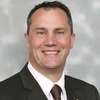
Bradford Metropolitan District Council, which runs 41 children’s centres, is proposing shutting its seven ‘Phase 3 children’s centres’, which it says were the last to be developed and are located in low-need areas.
If the plans, which are currently out for consultation, go ahead, the council says it will increase the catchment areas for the remaining centres or continue running outreach services in the same areas but from different buildings.
The Labour council is also proposing to move early learning provision from four locations to two, one each in Bradford and Shipley.
Councillor Ralph Berry, executive member for children and young people, said, ‘Over a year ago the Government cut the Early Intervention Grant by a third, which means we have continued to maintain the children’s centres at our own cost.
‘We have now been forced by the Government reductions to look at ways we can continue the services throughout the district but from less centres.
‘We will be discussing ways in which some centres can be managed by partnerships and I am aware of ideas that are already being discussed to secure their future viability.'
A decision about the proposals will be made by the council next year.
Bradford’s Conservative group has accused the Labour council of ‘intentionally targeting’ children’s centres in wards that are represented by Conservative councillors. Councillor Glen Miller, leader of the Conservative Group (pictured), said, ‘There are no proposals to close any children’s centres in wards represented by Labour councillors. Colleagues and I are inspecting the budget proposals in detail, to ascertain whether the targeted removal of the children’s centres is part of a wider campaign to punish areas where residents don’t vote labour, by reducing or removing services generally.’
Councillor Glen Miller, leader of the Conservative Group (pictured), said, ‘There are no proposals to close any children’s centres in wards represented by Labour councillors. Colleagues and I are inspecting the budget proposals in detail, to ascertain whether the targeted removal of the children’s centres is part of a wider campaign to punish areas where residents don’t vote labour, by reducing or removing services generally.’
Councillor Jackie Whiteley, who represents the wards of Burley and Menston, added, ‘Some of the threatened centres have only been open for three years and have steadily increasing numbers of children using them. We are told that the service is being retained where the number of deprived children is highest, but the proposals take no account of children who are just as deprived, but live in small pockets of deprivation in more affluent wards.
‘As these wards are often rural and thus isolated, it will be very difficult and costly to families of limited means to travel into the larger deprived communities, which will result in the service effectively being removed from vulnerable children who are already isolated by geography.’
Register now to continue reading
Thank you for visiting Nursery World and making use of our archive of more than 35,000 expert features, subject guides, case studies and policy updates. Why not register today and enjoy the following great benefits:
What's included
-
Free access to 4 subscriber-only articles per month
-
Unlimited access to news and opinion
-
Email newsletter providing activity ideas, best practice and breaking news
Already have an account? Sign in here
